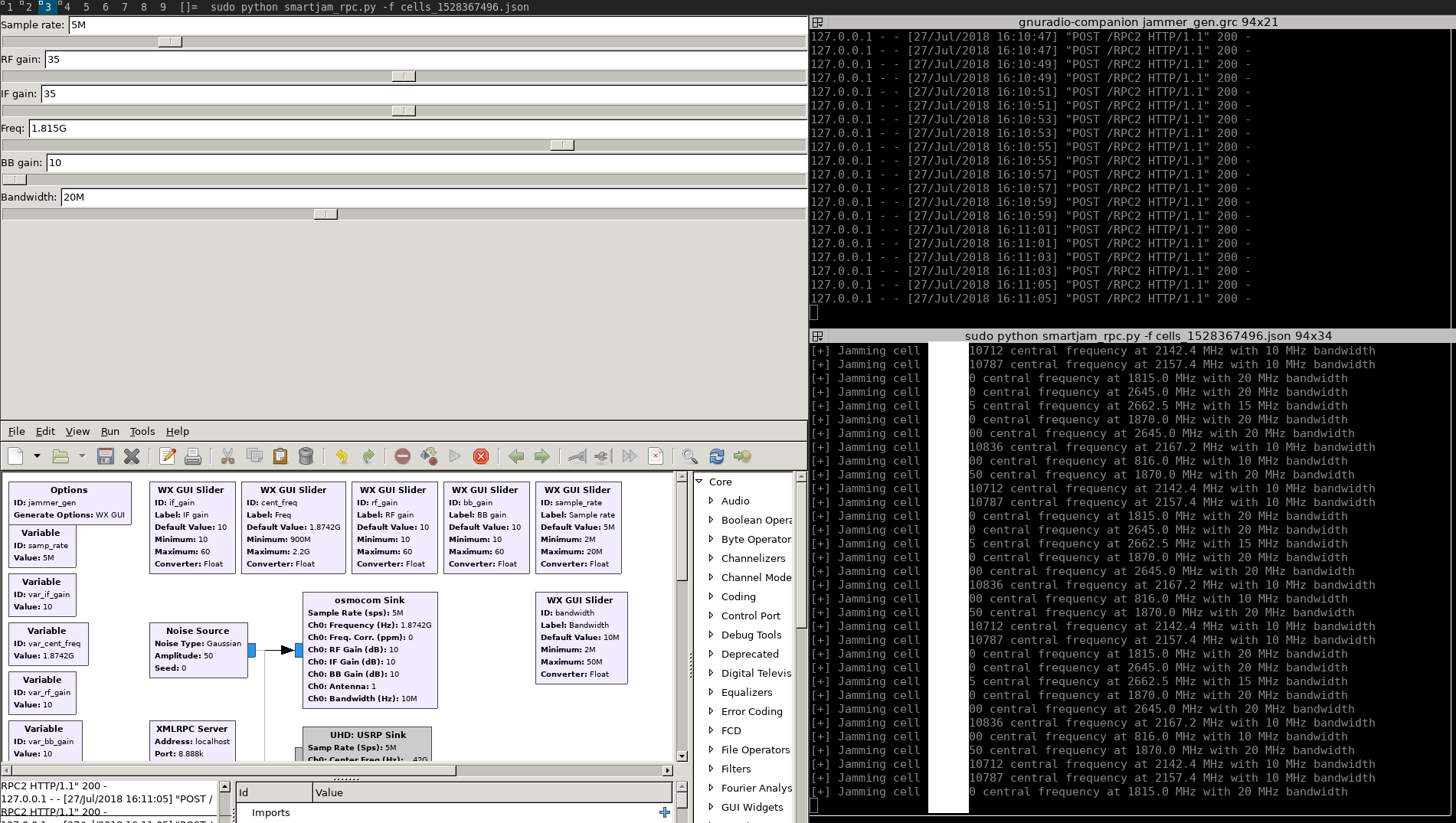A smart jamming proof of concept for mobile equipments that could be powered with Modmobmap
For more information, this little tool has been presented during SSTIC rump 2018:
- english slides: https://www.synacktiv.com/ressources/sstic_rump_2018_modmobjam.pdf
- french presentation: https://static.sstic.org/rumps2018/SSTIC_2018-06-14_P10_RUMPS_22.mp4
You should be warned that Jamming is illegal and you're responsible for any damages when using it on your own.
- a radio devices that is enabled to transmit signal (HackRF, USRP, bladeRF, and so on.)
- GNU Radio installed
- Modmobmap to perform automatic smartjamming: https://github.com/Synacktiv/Modmobmap
If you have a HackRF or any device compatible with osmocom drivers, you can directly run the code provided in GRC/jammer_gen.py as follows:
$ python GRC/jammer_gen.pyFor those who want to use another device like USRP, edit the GNU Radio block schema GRC/jammer_gen.grc:
$ gnuradio-companion GRC/jammer_gen.grcThen you can configure the central frequency with the WX GUI to target a frequency. But this tool has also a feature to do it automatically.
To automate jamming, you can first get a list of we the Modmobmap that saves a JSON file after monitoring surrounding cells in a precise location. This JSON file looks as follows:
$ cat cells_<generated timestamp>.json
{
"****-***50": {
"PCI": "****",
"PLMN": "208-01",
"TAC": "50****",
"band": 3,
"bandwidth": "20MHz",
"eARFCN": 1850,
"type": "4G"
},
"7-***": {
"PLMN": "208-20",
"arfcn": 1018,
"cid": "***",
"type": "2G"
},
"****:-****12": {
"PLMN": "208-1",
"RX": 10712,
"TX": 9762,
"band": 1,
"type": "3G"
},
[...]
}After generating this file containing cells to jam, you can launch the RPC client that communicate with GRC/jammer_gen.py as follows:
$ python smartjam_rpcclient.py -f cells_<generated timestamp>.jsonThen leverage the gain for transmission and you should observe that a lot of noise is overflowing the targeted cells with gaussian noise.
Please note that the delay between each targeted cell can be set with a provided arguments '-d' (see arguments helper).
